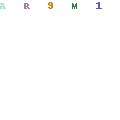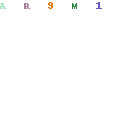Population
Djibouti’s average population density is 42 residents per km2, but with a strong concentration of cities. About 78 percent of the population lives in one of the country’s cities, of which the capital Djibouti (623,900 residents, 2013) is clearly dominant.
In 2019, the birth and death rates were estimated at 22 and 7 per thousand, respectively, which gives a natural population increase of 1.5 percent.
According to thesciencetutor, Djibouti is dominated by two ethnic groups, Issa (341,000) and Afar (394,000). In addition, there are Yemeni and Indian merchants (5,000 and 1,800, respectively) as well as naturalized Europeans. French and Greeks.
For information on life expectancy and other demographic statistics, see Country facts.
Issa is a Somali clan who professes to Islam and speaks Somali; they inhabit the southern half of Djibouti and are also found in northwestern Somalia as well as in Ethiopia. Those living in the countryside are supported by nomadic livestock management (camels, sheep and goats), those living in the cities are engaged in trade. Issa is internally grouped into three patrilineal lineages. Issa has a board condition with weak central power and does not really have a hierarchy.
Most of the Kushite-speaking Afas reside in Ethiopia and a minor part in Eritrea and Somalia. They are Muslims, and even among them livestock management dominates as a source of supply. Afar’s lineages are divided into two state-like factions, adoimara (“the white”) and asaimara (“the red”), where the latter traditionally constituted a land-owning aristocracy.

Language
Native languages are Somali (spoken by 47% of the population), Afar (37%) and Arabic (12%). Official languages are Arabic and French. Compare population above.
Religion
Islam is a state religion in Djibouti, which entails a certain degree of state regulation and involvement in mainly the non-Islamic religious communities, but at the same time the citizens’ freedom to practice their religion is respected. Sunni Islam is comprised of 97% of the population. In addition to a small proportion of agnostics, there are a small number of Catholics, Protestants, Copts, Ethiopian Orthodox, Greek Orthodox, Jehovah’s Witnesses and a few Baha’is. The first Christians who came to Djibouti in 1862 were French colonizers. In 1977, the country became an independent republic from colonial power France.
